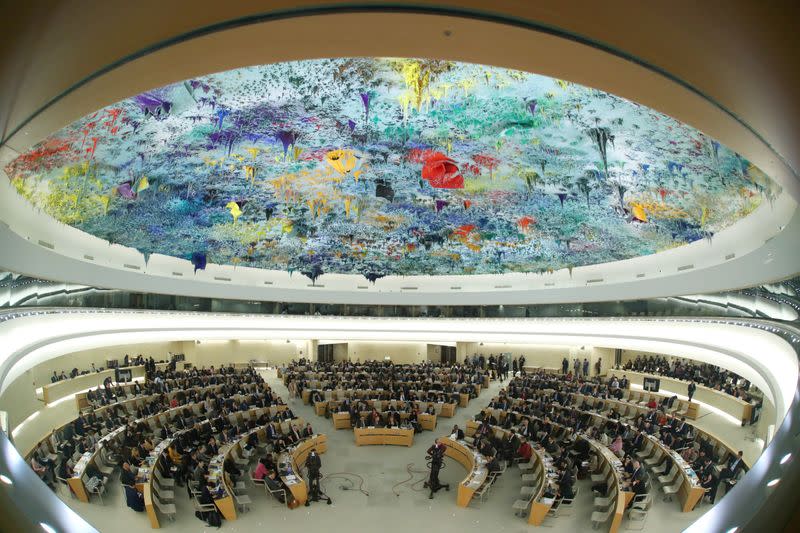By Emma Farge
GENEVA (Reuters) – Russia and China opposed a Fijian candidate seen as a staunch human rights defender to lead the UN’s top human rights body, diplomats and observers say, creating a stalemate as Washington can try to return to the forum he abandoned in 2018.
The presidency of the Human Rights Council alternates annually between regions and is generally agreed by consensus, with any dispute normally resolved quickly and cordially, diplomats say.
The stalemate means that the council, the only global intergovernmental body to promote and protect human rights worldwide, is expected to resume work in Geneva next week without a leader for the first time in its 15-year history.
Although their decisions are not legally binding, they have political weight and can authorize investigations into violations.
The internal struggle points to a high-risk game in which the powers seek to preemptively neutralize the future influence of the United States, which could return to the body under President-elect Joe Biden, said Marc Limon of the Universal Rights think tank.
“Neither China nor Russia want a human rights-friendly country to hold the presidency in a year when the United States is likely to reinstate the council,” he said.
Russia, China and Saudi Arabia – sometimes acting through prosecutors – opposed the choice of Fiji’s ambassador, Nazhat Shameem Khan, or supported other last-minute candidates, observers and two diplomats said.
“Saudi Arabia, China and Russia are understood to have supported an candidacy from Bahrain and opposed a candidacy by Fiji,” said Phil Lynch, director of the International Human Rights Service, citing Fiji’s background, with Khan supporting investigations into abuses in Belarus and Yemen last year.
The NGO is accredited by the council and participates in the debates.
A Chinese diplomat said on Friday that he would be “happy to see any of these candidates as president”.
Diplomatic missions in Fiji, Russia and Saudi Arabia did not respond to requests for comment.
Khan did not withdraw, and alternative candidates from Bahrain and Uzbekistan presented since December also faced opposition, diplomats said.
“This confusion potentially strengthens those voices that argue that the HRC is undemocratic, dysfunctional, etc., and the United States should not engage again (or insist on major reforms as a price to do so),” said Richard Gowan of International Crisis Group.
A review that could lead to reforms of the forum is pending.
Currently, members must be elected to the 47-member council to vote for him – but that could be one of the issues considered in any reform. China and Russia return to the council this year.
The chairman of the council has limited powers, although some say the role has become increasingly political.
The president, however, appoints independent experts, like the one who led an investigation into the murder of Saudi journalist Jamal Khashoggi.
Attempts by Oman, the Asia-Pacific group’s coordinator last year, to resolve the issue by secret ballot struck Qatar’s opposition, creating an impasse that a diplomat called a “mess.”
One way to resolve the impasse could be a vote on the council next week, diplomats say.
(Reporting by Emma Farge; Editing by Stephanie Nebehay and Alison Williams)
